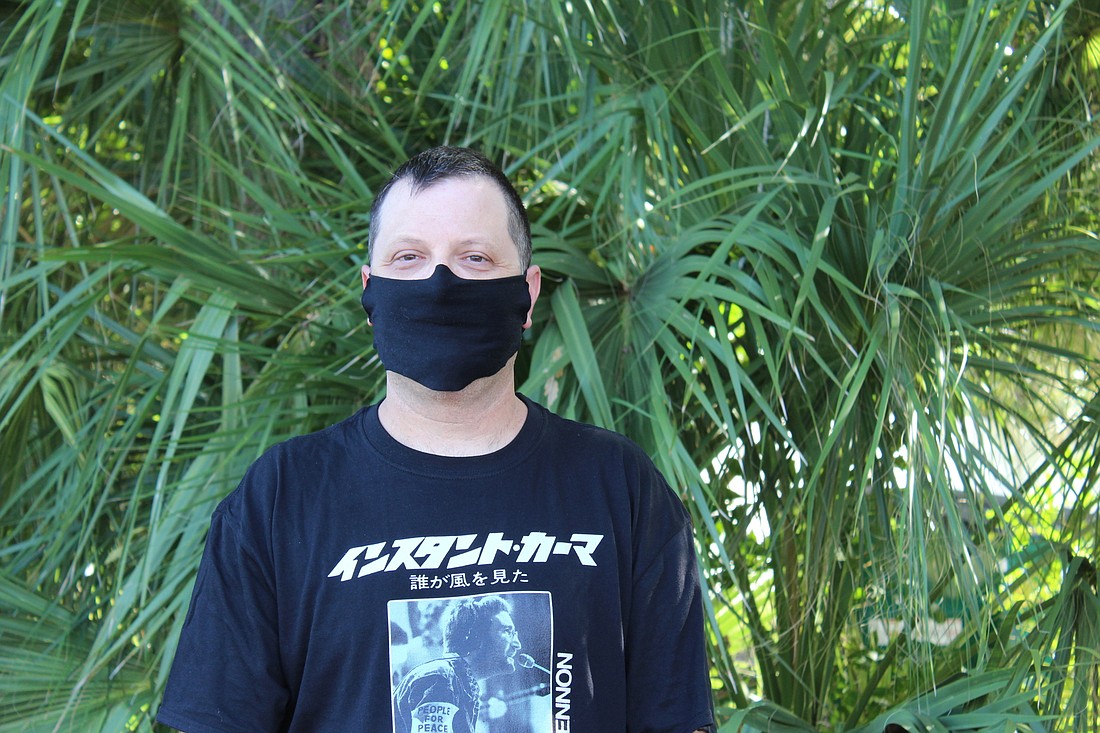- July 11, 2025
-
-
Loading

Loading

When Bill Gardner came home from work Aug. 21, he found his wife Eny quarantining herself with a mask on.
Eny was experiencing total exhaustion, chronic headaches and body aches, so Gardner took her to University Town Center to take a COVID-19 test. He took one too, for good measure.
Eny’s test was positive, though Gardner’s was negative. However, as a bus driver for the county, Gardner still had to quarantine for two weeks before returning to work.
After a few days at home, Gardner decided to again get tested. He brought his two children for tests as well.
This time, he and his 8-year-old daughter’s tests came back positive, though he still wasn’t experiencing any symptoms.
The next day, however, he ordered a pizza for himself and his family. He thought he hadn’t waited long enough for the cheese to cool before biting into it and had burnt his tongue.
He soon realized, however, that he couldn’t taste the pizza.
“All of a sudden I felt like a ton of bricks,” Gardner said. “I had problems with my nasal cavity, I had a chronic headache, I couldn’t smell or taste anything, and I had sharp pains jabbing through my whole body.”
From there, his 10-year-old son quarantined himself in his bedroom, which Gardner said he didn’t seem to mind. His daughter experienced the least amount of symptoms, with just a lack of appetite causing an issue.
When she found out three-quarters of the family was sick, Eny took on most of the household functions.
“My wife is the backbone of the family,” Gardner said. “She never complained, and she was just truly the backbone through all this, keeping us all together.”
In addition to Eny’s cooking, Gardner said friends and family dropped food off, but he found it difficult to get out of bed to pick it up off the porch. Mostly, he laid in bed listening to Sirius XM’s yacht rock station.
“It’s so exhausting,” he said. “It’s so much worse than any other thing I’ve ever had.”
He received about six phone calls in one week from the Centers for Disease Control and Prevention asking about how the family was doing.
“I was being bombarded with people that were very caring and who were asking how we were feeling, how we were coping,” Gardner said. “They truly cared how we were all doing.”
For him, the worst part wasn’t the bodily symptoms; it was the uncertainty around the virus.
“Knowing that you have something that there’s not cure for, you just keep thinking, ‘When is it going to end,’” Gardner said.
After two weeks of quarantine, Gardner was cleared to return to work. The first week back, however, was not easy because he was still experiencing exhaustion.
After going through COVID-19, Gardner said people should always wear their masks in public and remember that if they do contract it, the effects won’t last forever.
“People need to know that the CDC is not just the CDC — they care about you,” Gardner said. “It’s going to end. It’s not permanent. The CDC knows what it’s doing, and you’re going to make it. You just have to hang in there. Be strong.”